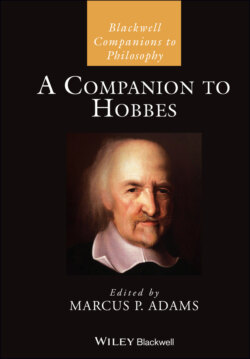Читать книгу A Companion to Hobbes - Группа авторов - Страница 32
2.1 Stoic Sources
ОглавлениеA scholar of classical Greek language and literature throughout his life, Hobbes made translations of Thucydides in his thirties and Homer in his eighties (EW VIII; EW X). He mentions the “Stoa” as a major school of Athens in Leviathan XLVI (2012, 1056; 1651, 521) and endorses various insights of Cicero in Leviathan V (2012, 68; 1651, 31)1 though he demurs from the Stoic thesis that all crimes are equal in Leviathan XXVII (2012, 466; 1651, 231). The famous Stoic doctrine of fate (heimarmene) is referenced in the Latin edition of Leviathan (Leviathan, Appendix I; 2012, 1152; OL III. 517). Of course, Stoicism was widely popular in the intellectual culture of sixteenth and seventeenth century Europe (see Barker and Goldstein 1984; Brooke 2012; Lagrée 1994; Long 2003).2 So whence the particular influence on Hobbes’s natural philosophy?
